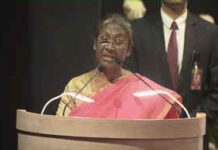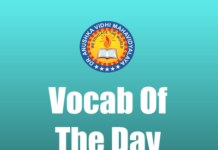 TOPIC – The digital bargain
TOPIC – The digital bargain
“Google’s battle against proposed Australia law could lead to a new template for the business of news in the digital age.”
The battle between Google and, to a lesser extent, Facebook, and traditional news media in Australia reached a head earlier this month when the tech giant threatened to withdraw its popular search services from the country. The bone of contention is a proposed law that frames a bargaining code to ensure that news outlets are compensated for the content they generate. The dispute frames the issue of the dominance of a handful of companies in the digital news landscape. Second, given the abiding importance of quality journalism in informing public debate, it could provide the template for how news organisations’ businesses and revenue models will evolve. The proposed law has come not from Australia’s media watchdog but from the Australian Competition and Consumer Commission, which found after an 18-month investigation that the control over the distribution of content that Google and Facebook have, and the profit from news content they corner, threatens the viability of traditional media. For example, for every $100 of digital advertising revenue accrued in Australia, $53 goes to Google, $28 to Facebook and $19 is shared among the companies that often actually produce content. Under the new law, if an agreement cannot be reached between online platforms and media houses in a stipulated period, the matter will go into arbitration, where the decision will be binding. It is this final clause that Google objects to the most. As a compromise — and a strategy — Google has launched its “News Showcase” in Australia, and is trying to strike a deal with media groups before the new law comes into effect. News Showcase and a similar initiative by Facebook in the UK in December 2020 pay news outlets licence fees to use their content. The fear, especially among smaller media houses, is that without a law, they will have no bargaining power vis a vis digital behemoths. There is little doubt that technology has changed how content is consumed and shapes how news outlets must evolve. In entertainment, for example, large studios like Disney have launched their own platforms to compete with the likes of Netflix and Amazon. Given the monopolistic control that Google and Facebook enjoy — and questions over their algorithm-led editorial judgment — preserving the diversity of the media landscape has merit. Already, the spectre of regulation seems to be pushing these companies to share profits with those who create content and report the news. Negotiations between old media and new in Australia will be keenly watched.


















